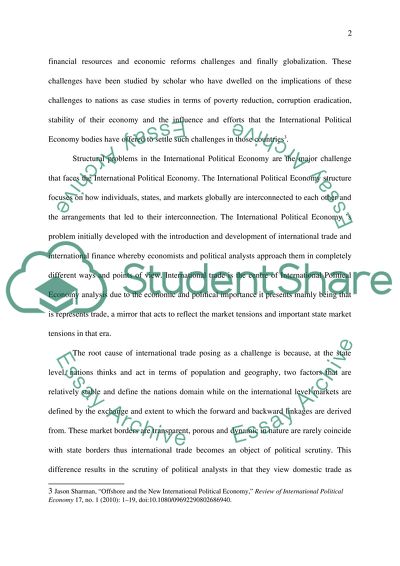Cite this document
(“International Political Economy Essay Example | Topics and Well Written Essays - 2000 words”, n.d.)
International Political Economy Essay Example | Topics and Well Written Essays - 2000 words. Retrieved from https://studentshare.org/politics/1686723-international-political-economy
International Political Economy Essay Example | Topics and Well Written Essays - 2000 words. Retrieved from https://studentshare.org/politics/1686723-international-political-economy
(International Political Economy Essay Example | Topics and Well Written Essays - 2000 Words)
International Political Economy Essay Example | Topics and Well Written Essays - 2000 Words. https://studentshare.org/politics/1686723-international-political-economy.
International Political Economy Essay Example | Topics and Well Written Essays - 2000 Words. https://studentshare.org/politics/1686723-international-political-economy.
“International Political Economy Essay Example | Topics and Well Written Essays - 2000 Words”, n.d. https://studentshare.org/politics/1686723-international-political-economy.


